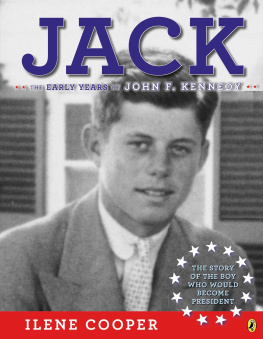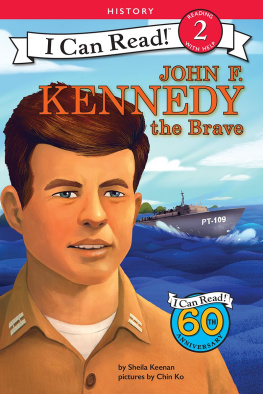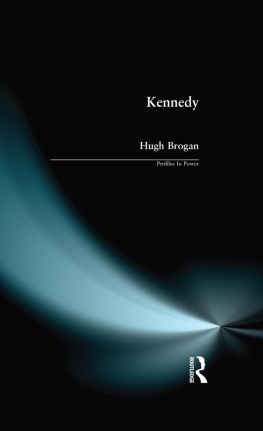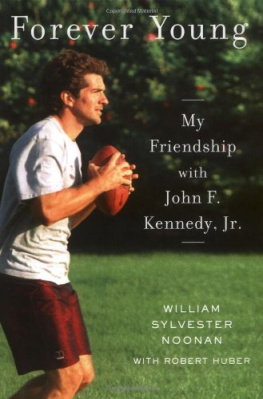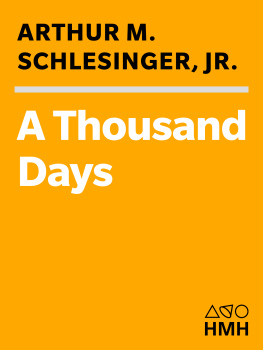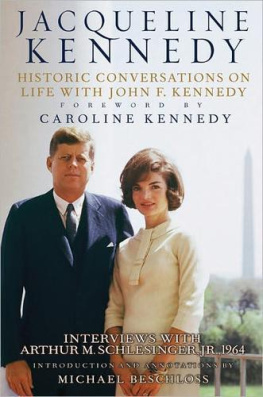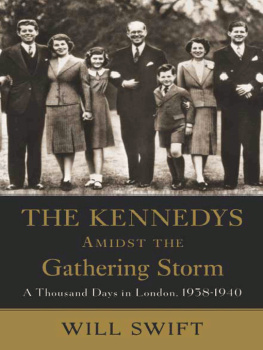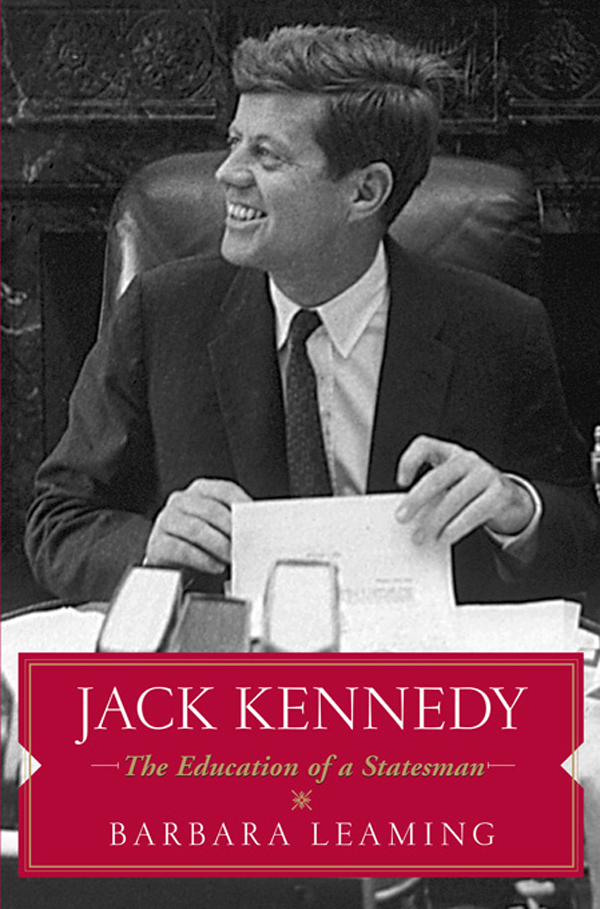
W. W. Norton & Company
New York London
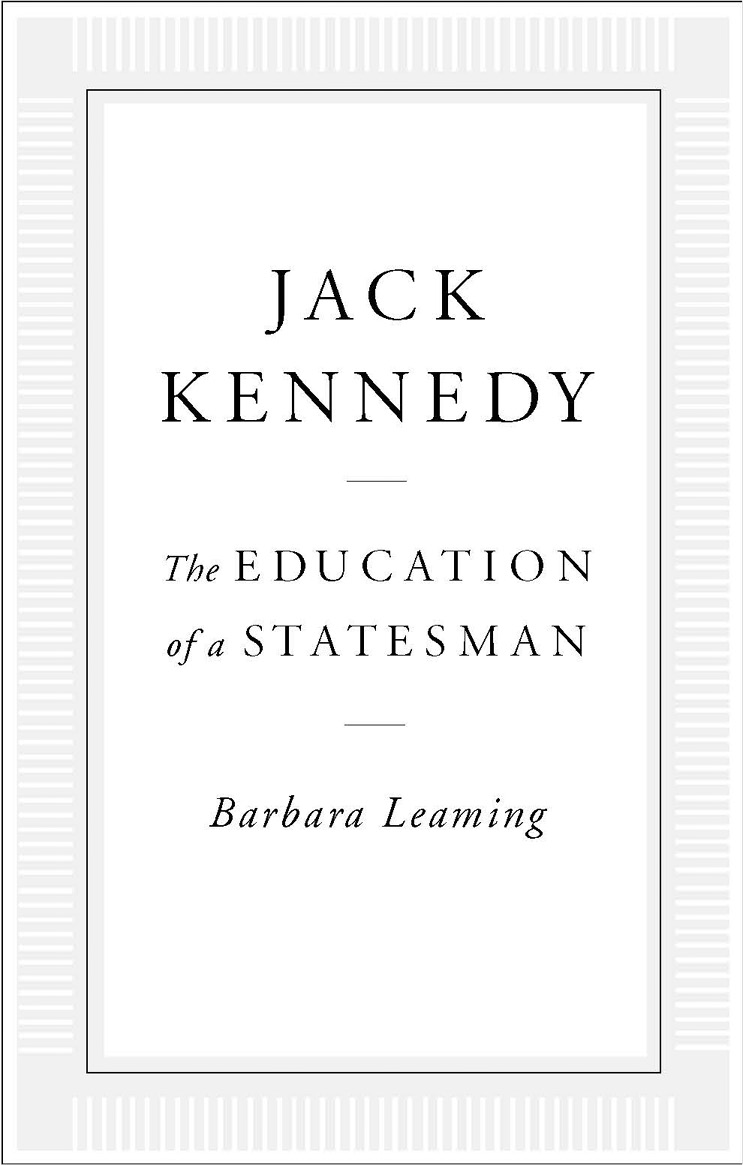
CONTENTS
CHAPTER ONE
The Twenty-Five-Year Conversation
IN THE AFTERNOON ON SATURDAY, JUNE 29, 1963, A helicopters whirling rotors sounded over Chatsworth, the palace of the Devonshire dukes nestled in the Derbyshire countryside. In accord with the American presidents wishes, there had been no public announcement of his visit; it was, he said, of an extremely personal nature, and he hoped it could take place with complete secrecy. To that end, the estate manager had orders to mark the landing ground at the last possible moment; and most of the police called in on special duty had no idea why they were there until the brown United States Army helicopter materialized overhead.
From inside the aircraft, Jack Kennedy had a spectacular view of the vast, golden stone edifice. Sunlight glinted off long rows of gilded window frames, intensifying the effect of sensuous color. As he passed over green parkland, a plume of water shot high into the air from the famous Emperors Fountain. Finally, the helicopter touched down on the hillside above the house, some hundred yards from the churchyard of the estates tiny gray-walled village of Edensor. When the door opened, the president, dressed in a single-breasted dark blue suit, gingerly descended some steps.
In the field below waited the 11th Duke of Devonshire. He had rearranged his weekend plans the previous day, when word came of Jack Kennedys wish for a private visit before he went on to an official meeting with Prime Minister Harold Macmillan, the dukes uncle, and the dukes cousin David Ormsby Gore, who was Kennedys close personal friend as well as the British ambassador to the United States. Andrew Devonshire escorted his guest across a narrow steel scaffolding bridge, which estate workers had erected overnight between the field and the churchyard. The president and the duke walked together with the easy familiarity of long years of family intimacy. Even now, a quarter century after they had been members of the same London set on the eve of the Second World War, there was something remarkably youthful about these two tall, thin men, a boyish quality unaltered by rank and power or by the tragedies that had linked their lives.
At least thirty uniformed police, under strict orders to stay back lest they intrude on the presidents act of memory and homage, ringed the churchyard where the Cavendish family plot lay. The duke discreetly dropped back as the vicar guided Kennedy to his sisters grave. They stopped in front of a stone marker with the inscription, In loving memory of Kathleen, 19201948, widow of Major the Marquess of Hartington, killed in action, and daughter of the Hon. Joseph P. Kennedy, sometime Ambassador of the United States to Great Britain. Joy she gavejoy she has found.
For a long moment Kennedy stood in silence. From a distance, the Duchess of Devonshire, the former Debo Mitford, who had overseen all the last-minute arrangements to ensure her friends privacy, watched him place a small, simple bunch of flowers, the stems wrapped in silver foil, on the ground. Then, despite the pain his bad back cost him, Jack lowered himself to his knees and began to pray. Almost exactly fifteen years before, Debo Devonshire had stood in this same churchyard and watched her mother-in-law, then herself the duchess, bury the young American girl her eldest son had loved so intensely. She had seen the look of anguish on the face of old Joe Kennedy, by that time a reviled figure in Britain because of his anti-British pronouncements during the war, as he stood at his daughters graveside, the only Kennedy present at the funeral. Jack himself had begun the trip from America, but he had only gone as far as New York before turning back without explanation, unable to face the reality of the death of the person who more than any other had always believed in him. Fifteen years later he had come at last, at a time when, after long struggle, he had finally emerged as the man she had always insisted he could be.
the presidents prayers were done, the vicar walked him past the old church to the dukes Bentley. By the time Jack joined the Devonshires in the car, his right arm was clutched tightly against one side, as if the act of kneeling had been almost too much for him. Soon, they crossed a bridge over the river that ran in front of the great house where Kick had once dreamed she would make an exciting political life for herself and her husband when he became the 11th duke. But the war, which had changed everything for the three people in the car, shattered Kicks dreams.
This book tells the story of the lifelong impact on Jack Kennedy of the world his sister introduced him to in London before the war. It tells of the bonds of friendship and family forged in that turbulent time that did so much to shape the man who would become president, and it examines the deep and lasting influence of British history, literature and values on an American leader. It shows how the experience of Britain on the eve of war provisioned him with knowledge and ideas that he would draw on significantly throughout his political career; and it traces Britains continued impact long after Kathleens death. Through conversation and reading, Jack Kennedy reinvented himself politically and intellectually in the years that followed the Second World War. In exploring that process, this book shows for the first time Winston Churchills monumental influence on the thirty-fifth president and lays open the central strategy of the presidency as Kennedy himself saw it.
That Kennedy admired Churchill has long been known. But no historian has yet examined his preoccupation with the ideas in Churchills speeches and writings, or tracked his attempts to apply them during his years in the White House. As president, Kennedy drew on the full range of Churchillian thought, from insights into how the First World War began to Churchills program for defeating the Soviets after the Second World War. This book reveals the previously unrecognized influence of David Ormsby Gore, Kennedys friend from prewar days in London, who helped convey Churchills defining ideas about the postwar world to the presidential aspirant and counseled him as he made them an integral part of both his campaign and his presidency. Ormsby Gore would speak in later years of Kennedys twenty-five-year conversation with Britain. In the late 1930s, Kennedy had fervently Ormsby Gore and other young aristocrats certain questionsnotably, the differences between a politician and a statesmanthat would remain unresolved almost until the end of his life. In British books the young Jack Kennedy discovered an image of the man he wanted to be, and he spent much of his life struggling against considerable odds to become that man.
By documenting Kennedys goals in office and by tracing their sources, this new portrait of the thirty-fifth president differs sharply from previous accounts, which depict him as coming to the White House with far more in the way of attitude than ideas. On inauguration day, Kennedy knewand stated emphaticallywhat he hoped to do. The question, in his own terms, was whether he had the political courage to try.
WINSTON CHURCHILL SAW the First World War, the Second World War and the postwar struggle with the Soviets as a single, vast narrative, in which the lessons of the first two world wars were crucial to averting a third. An avid student of Churchills writing, John Fitzgerald Kennedy learned to look at the history of those years in the same way. Kennedy was formed intellectually in the run-up to the Second World War and he claimed his place in history during the postwar era, but his personal story, like Churchills three-part historical continuum, began with the bloodshed of what was once known as the Great War.
Next page

